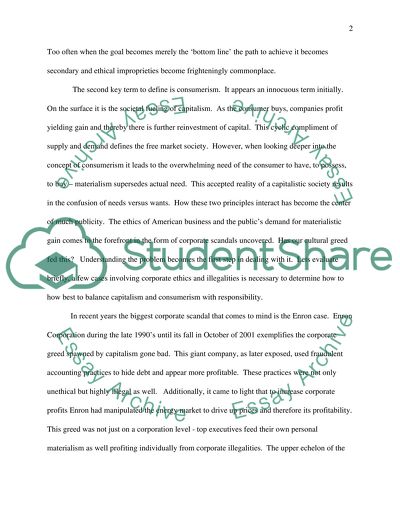Cite this document
(Ethical Issues in Modern Business Essay Example | Topics and Well Written Essays - 1750 words, n.d.)
Ethical Issues in Modern Business Essay Example | Topics and Well Written Essays - 1750 words. https://studentshare.org/ethics/1535211-capitalism-or-consumerism
Ethical Issues in Modern Business Essay Example | Topics and Well Written Essays - 1750 words. https://studentshare.org/ethics/1535211-capitalism-or-consumerism
(Ethical Issues in Modern Business Essay Example | Topics and Well Written Essays - 1750 Words)
Ethical Issues in Modern Business Essay Example | Topics and Well Written Essays - 1750 Words. https://studentshare.org/ethics/1535211-capitalism-or-consumerism.
Ethical Issues in Modern Business Essay Example | Topics and Well Written Essays - 1750 Words. https://studentshare.org/ethics/1535211-capitalism-or-consumerism.
“Ethical Issues in Modern Business Essay Example | Topics and Well Written Essays - 1750 Words”. https://studentshare.org/ethics/1535211-capitalism-or-consumerism.


